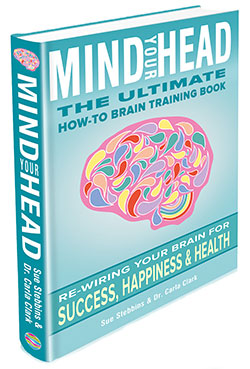Reid on Memory and Personal Identity
Rebecca Copenhaver
Page 3
Source: http://plato.stanford.edu/entries/reid-memory-identity/
Reid is most interested in episodic memory. Though Reid does not use the contemporary terminology, his theory draws upon both the distinction between episodic and semantic memory and the Previous Awareness Condition on episodic memory. As he puts the matter:
Things remembered must be things formerly perceived or known. I remember the transit of Venus over the sun in the year 1769. I must therefore have perceived it at the time it happened, otherwise I could not now remember it. Our first acquaintance with any object of thought cannot be by remembrance. Memory can only produce a continuance or renewal of a former acquaintance with the things remembered (Essays, 255).
Though Reid uses the term ‘acquaintance,’ the things retained through memory are things previously perceived or experienced. The term ‘acquaintance’ has acquired a technical sense that it did not have in Reid's day, so it is better to see Reid as holding that memory preserves contact with events previouslyapprehended through perception and thereby known by acquaintance. Acquaintance presupposes apprehension, and prior episodes of apprehension are necessary for retained acquaintance. According to Reid, episodic memory is not a current apprehension of a past event, nor is it a current apprehension of a past experience. These theoretical options were ruled out by Reid's criticism of Locke and Hume. Rather, according to Reid, memory is an act that preserves a past apprehension. Reid characterizes memory as exhibiting what we now call the Previous Awareness Condition. He holds that reports of episodic memory are true only if the person reporting satisfies the condition, and that experiences that otherwise appear to be episodic memories, but which fail the condition, are not episodic memories (Essays, 264).
Reid does not count what we term ‘semantic memories’ as memories in the proper sense. He does so not because they fail to meet the Previous Awareness Condition, but because he holds that semantic memories are better classified as beliefs or knowledge rather than memories. For example, he would hold that a person today who reports remembering that Napoleon was defeated at Waterloo expresses a belief or knowledge rather than a memory. He holds this because he requires a distinction between two sorts of beliefs that would otherwise be obscured by the fact that each sort can be expressed in the form of a semantic memory report. The distinction is between those memories that play a role in preserving past apprehension (and which are constituents of episodic memory), and those that do not play a role in preserving past apprehension (and which are not, strictly speaking, memories). For example, Jane believes that she dined with a friend last night. Jane has an episodic memory of this event, and according to Reid, her belief ‘that I dined with a friend last night,’ plays a role in preserving Jane's past apprehension of dining with her friend. On the other hand, Jane's belief that she had a third birthday party does not play a role in preserving her past apprehension of her third birthday party; she has no episodic memory of her third birthday party. The difference between these two sorts of belief is obscured by the fact that each may be expressed by using the factive compliment: ‘Jane remembers that she dined with a friend last night,’ and ‘Jane remembers that she had a third birthday party.’
According to Reid, a memory consists in a conception of a past event and a belief about that past event, that it happened to the person who is represented in that memory as agent or witness (Essays, 228, 232, 254, 257). This conception-belief structure mirrors Reid's accounts of perception and consciousness, each of which also consist in a conception and belief. The belief that is a constituent of memory, on Reid's view, is a belief of some past event, that it happened. In particular, it is a belief that it happened to me, where the pronoun is indexed to the person who is represented in the memory as agent or witness to the event (Essays, 255, 262). The belief is about or of the event because the other constituent of memory—the conception—supplies the event, which is the object of the belief. On Reid's view, the objects of memory are the events presented in past apprehensions. Memory preserves past apprehensions by relating us to the events originally presented in perception through conception and belief. In particular, the objects of memory are not the past apprehensions themselves but that which is presented in the past apprehensions, namely, the original event (Inquiry, 28).
Reid holds that memory is not a current apprehension of an event already presented in a past apprehension. In other words, we do not remember events by re-apprehending them. Rather, the past apprehension is itself preserved by the act of remembering the event apprehended. Memory is an act of preservation through conception and belief. Such preservation does not itself constitute an additional apprehension over and above the apprehension preserved. Indeed, according to Reid, it is impossible to currently apprehend any events in the past; apprehension is confined to perceiving present objects or being conscious of present mental operations (Essays, 23, 253). Reid does not deny that memory is itself a current mental state, nor does he deny that memory presupposes a past apprehension. He denies only that memory is a current apprehension, and that the object of a memory is a past apprehension (Essays, 253). Memory preserves past apprehension by conceiving of an event previously apprehended and believing, of this event, that it happened to me.
Reid holds that memory, like perception, is immediate. Neither the conception nor the belief that are the ingredients of memory are formed on the basis of reasoning or testimony. Memory is an original faculty of our constitution governed by what Reid calls “the first principles of contingent truths.” In the case of memory, the governing principle is that “those things did really happen which I distinctly remember” (Essays, 474). On Reid's view, a normally functioning human does not and need not infer to a past event in episodic memory. In order to infer to a past event, one must have some prior, non-inferential relation to the event if it is to be a memory rather than a belief or knowledge. But then this prior, non-inferential relation would be an episodic memory. In addition, if episodic memory involved an inference to the effect that the event happened to me, the inference would be otiose because, as Reid claims, such a belief is already an immediate, non-inferential component of episodic memory. In principle, one could infer from the conception and belief that are ingredients in memory to a further belief that the event happened. But if such a belief plays a role in preserving past apprehension then it is superfluous—such a belief, subject to the Previous Awareness Condition, is already embedded in episodic memory. If the belief does not play a role in preserving past apprehension then it is a semantic memory, which, according to Reid, is among the species of belief or knowledge rather memory.
The distinction between beliefs that are ingredients in episodic memories and beliefs that are based on, but not ingredients in, episodic memories allows Reid to account for cases in which a memorial experience continues to represent an event as having happened, even when the person who seems to remember the event has what she regards as an overriding reason to believe that the event did not occur. The belief that is an ingredient in the experience represents the event as having happened to the person who seems to remember it. Further, the belief will continue to represent the event as having happened to the person, even under conditions in which she forms a separate belief, not embedded in the memorial experience, to the effect that it did not happen to her.
We Make it Easy to Succeed
Successwaves, Intl.
Brain Based Accelerated Success Audios
 |






